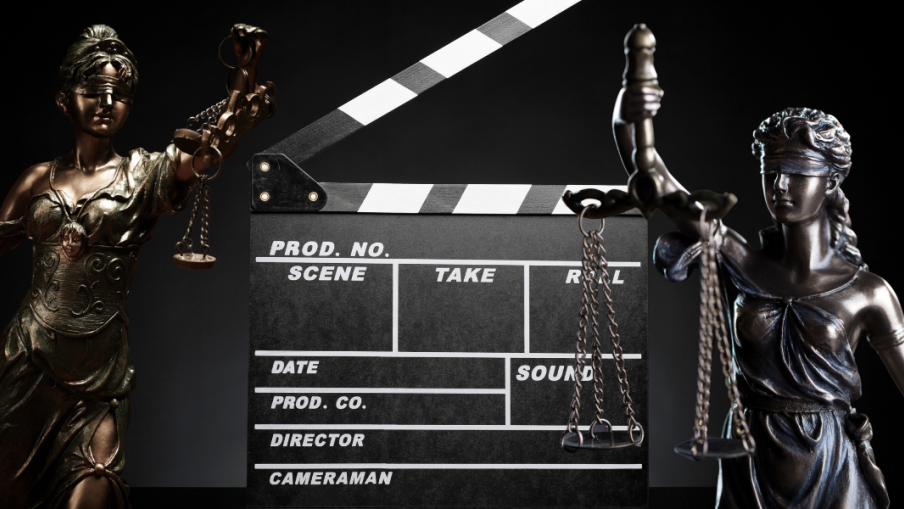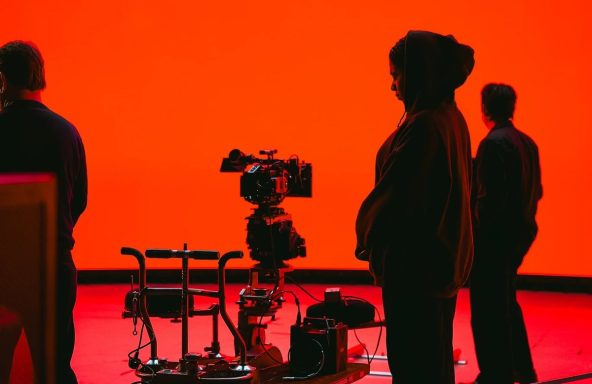Legal considerations for film and TV industry workers

Written by James Whitaker (Entertainment and Media Lawyer) and Elena Valeri (Producer – currently retraining in law).
Disclaimer
Please note that this article is for general informational purposes only; it is not intended to constitute, and should not be construed as, legal advice. All situations will be fact-dependant and will require specific consideration of the legal issues impacting that situation. Legal advice should be sought as required.
Creating content – bringing ideas to life, collaborating with amazing people, rendering stories, experiences and messages in impactful and aesthetic ways – is one of the most exciting and rewarding means of expression.
But amidst all the fun and creative energy, even the most well-thought-out projects can quietly – or, in some cases, not so quietly – be derailed by legal uncertainty and problems.
The “legal stuff” is rarely front of mind for those who just want to create (understandably; it doesn’t sound thrilling). But an appreciation of a few basics can significantly reduce the risk of disputes, delays, or worse, emerging down the line.
So here are some basic practical steps to keep in mind, having regard to some of the most common legal pitfalls – and how to navigate them.
Contracts are key: always use written agreements
Working without written agreements is one of the most common – and avoidable – mistakes in the industry.
Contracts are fundamental to any creative project (even/particularly with friends!); they govern every aspect of a project, whether involving talent, crew, of anyone else. They should be prepared, negotiated and in place at the earliest possible opportunity. Whilst contracts do not have to be in written form, it certainly helps if they are.
Regardless of how well projects start out, things can get messy: a falling out; a creative difference; financial difficulties. Questions arise: Who gets the final say? Who gets paid? Without a written agreement, these arguments can sink your project.
What is the fix?
Write it down. A simple contract ensures everyone’s on the same page. It doesn’t mean you don’t trust each other, it’s just smart.
For example, at the start of a collaboration, it will serve you well to identify clearly, and document:
- What the project is
- Roles and responsibilities
- Who owns what (and how profits will be shared)
- How decisions will be made and how any disagreements will be dealt with
- What happens if someone leaves the project
The Writers’ Guild of Great Britain provides guidance on writer agreements, protecting your work, and working collaboratively. Crew and talent contracts must also comply with employment law. Bectu’s legal rights factcard is a helpful starting point, especially for freelance workers.
Chain of title: make sure you have, and can prove you have, the rights
Closely related to contracts is the issue of chain of title. You’ve got the script of your dreams. But can you prove you have the right to turn it into a film? Without a solid chain of title, your film may never make it to audiences.
To release, sell or distribute any project, you’ll need to prove you own all relevant rights or have permission to use everything involved: scripts, source material, images, music, location agreements, release agreements from relevant parties, and more.
Copyright protects original works, but any third party content that is used will need clear licensing agreements spelling out what you can use, for how long, and what you’re paying for it.
The fix? Keep detailed records of your creative process, including what material you plan to use, and investigate which of that material requires express consent. From the earliest stages of the project, and along the way, make sure you have agreements in place with everyone involved in, or who may have contributed to, the creative process.
No clear paper trail tends to mean no distribution deal. Again, contracts are key.
Protect Your Own Intellectual Property
Your project is valuable intellectual property. Don’t leave it vulnerable.
- Understand what copyright protects, and what it does not protect, and how and when it arises
- Trademark your film’s title and logo, especially if you’re marketing internationally
- Use watermarks, date stamps or other tools to deter unauthorised copying or distribution
- Have your legal team check names, titles, and concepts before you commit – to avoid conflicts with existing rights
What is the fix?
Take steps to protect your own content and intellectual property; this is highly important. The UK Intellectual Property Office offers useful information and guidance on how to do this; your lawyers will be able to assist you.
Protect yourself: business structures and other issues
Business structure
Many creatives work as sole traders, but that can put your personal assets at risk if something goes wrong.
How to avoid putting your personal assets as risk
Setting up a limited company (perhaps a special purpose vehicle (SPV) for specific projects) creates a legal barrier between your personal assets and finances and your business. It can also boost your credibility with investors and partners, as well as with commissioners.
Taxation issues
Ignoring your tax obligations – such as registration, self-assessment requirements, payment obligations, and record keeping – can lead to hefty fines and other difficulties.
How to avoid fines and tax related stresses
Keep detailed records of your income and expenses. Work with an accountant who understands the creative industries to stay compliant—and save yourself stress.
Insurance
Filmmaking is full of surprises. Equipment gets damaged. People get hurt. Weather ruins your shoot. Without insurance, these problems can cost you dearly.
Find the right insurance for you
Identify and obtain the right insurance – public liability, property and equipment, cast insurance, and coverage for stunts or special effects (if applicable), as well as – potentially – legal expenses insurance. It’s your safety net.
Final Thoughts
You don’t need a law degree, or an expensive lawyer, to protect your creative work – but you do need to be proactive. With clear contracts, respect for others’ rights, and solid legal protections, you can focus on what you do best: creating something amazing.
Get free legal advice
The Film and TV Charity offer free expert legal advice to anyone working behind the scenes – from civil to employment law, they provide free legal professionals to help with any issue you may be facing.
If you’d like to access guidance around Professional Legal Matters related to issues raised in this blog then please register for support.

Get support
Explore the many ways we can help, from grants and support with bullying and harassment to our Whole Picture Toolkit for mentally healthy productions
About the authors
James Whitaker
James Whitaker is a City-trained lawyer who, having spent 15 years at a large international firm (including four years as partner), started his own media and entertainment-focused practice, Whitaker Law, in 2023.
Elena Valeri
Elena is an Italian-born, London-based producer with a background in award-winning short fiction, documentaries, and animation. A graduate of the National Film and Television School, she is currently retraining in law, with a particular interest in media law